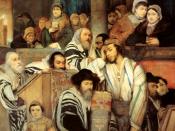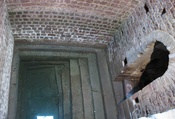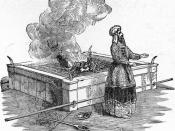Jewish festivals, originating in antiquity, are observed in Israel and throughout Jewish communities throughout the world intensively and in many ways. They are manifested in traditional and nontraditional customs and practice, and they leave their imprint on diverse aspects of national life. The Jewish festivals are the 'landmarks' by which Israelis mark the passing of the year. They are very much a part of daily life: on the street, in the school system, in synagogues and in the home.
However, not all Jews claim to be religious. Some Jews are secular with little time and regard for religion and may not have much identification with Israel. Some may regard their Jewishness as an accident of birth with no real significance, while others may still feel a strong ethnic cultural and social attachment to the Jewish people. When talking to such people one can point out that the very existence of the Jewish people in the face of so much hostility can be seen as a sign of God's overruling and the Bible can be shown as the only valid explanation for Israel's survival.
It is common to encounter attitudes of rebellion against religion, especially amongst young people reacting against what they see as the hypocrisy of their elders. It is also possible to encounter a rejection of God because of the suffering of Jewish people during the holocaust. Although such people reject Judaism, they will usually have similar reasons for rejecting Christianity to religious Jews.
Secular Jews make up a large proportion of British Jews. They have many cultural practices to which they do not attach religious significance. Secular Jews often spend days like Rosh Hashanah (New Year) and Shavuot (Pentecost) making trips in the countryside or enjoying other such leisure activities, while the religious will devote the major festivals...


